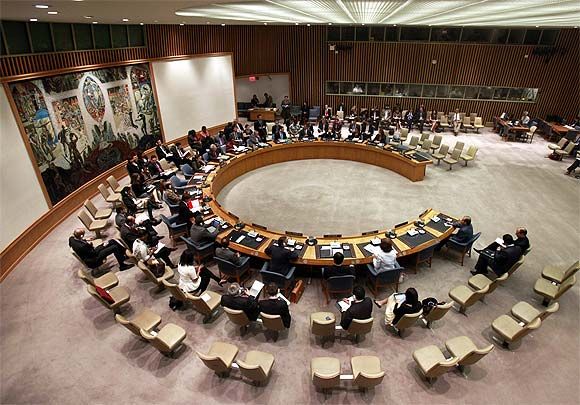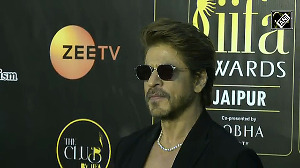 Days after China blocked its move in the United Nations for action against Pakistan over Zaki-ur-Rehman Lakhvi's release, India has slammed the "indifference" of some permanent UNSC members towards restraining terrorists, saying it has questioned the Security Council's ability to combat terrorism.
Days after China blocked its move in the United Nations for action against Pakistan over Zaki-ur-Rehman Lakhvi's release, India has slammed the "indifference" of some permanent UNSC members towards restraining terrorists, saying it has questioned the Security Council's ability to combat terrorism.
"Terrorists have attacked UN institutions and peacekeepers with impunity, without being prosecuted," India's Ambassador to the UN Asoke Mukerji said at the 70th Anniversary Commemoration of the UN Charter in San Francisco.
"The indifference of some permanent members of the Council to even fetter such terrorists under the Council's own sanctions regimes has questioned the seriousness and ability of the Council to tackle what is perhaps the single biggest threat to international peace and security today," he said.
Mukerji said the use of sanctions is often cited as proof of the Council's effectiveness.
"Yet, the track record of the Council over the past few years in using this tool in an objective, transparent and effective manner, especially to counter terrorism, has been challenged," he said at the event on Saturday.
Mukerji's remarks come against the backdrop of permanent member and veto-wielding China blocking India's move in the UN demanding action against Pakistan over release of Mumbai attack mastermind and LeT commander Lakhvi in violation of a resolution of the world body.
China blocked the move on grounds that India provided insufficient information.
Mukerji said the mushrooming conflicts and human suffering in many parts of the world today are symptoms of a breakdown of international peace and security, the primary responsibility for which was given by the UN Charter to the 15-nation Security Council.
The Indian envoy questioned why the five permanent members of the Council have not faced democratic approval in any UNSC election over the past 70 years.
"Within the Council, a special and privileged responsibility has been given by the Charter to the five allied powers that were victorious in the Second World War. It is ironic that these five have not faced the yardstick of democratic approval in any UN Security Council election over the last 70 years," he said, adding that the world has been transformed by a "surge of democracy".
Mukerji said two powerful tools that the Council has used to implement its authority are the use of peacekeepers and the enforcement of sanctions.
"However, as global security has become more fragmented, the tendency of the Council to mandate UN peacekeepers volunteered by countries not permanently represented in the Council to take on interventionist combat operations has become controversial," he said.
Mukerji stressed it is common to blame the Security Council's failures on the way in which the Council conducts its business, including in the use of that most undemocratic mechanism of decision-making given to the permanent members, the veto.
"However, the inability of the Security Council to effectively deal with conflicts is as much due to its increasingly unrepresentative character, which prevents it from seeking sustainable political solutions to crises," he said.
Mukerji quoted Ugandan President Yoweri Musevini as saying that out of the global human population of seven billion people, the five permanent members represent only about 1.9 billion people.
"It is clear, therefore, that only urgent and comprehensive reforms of the Security Council will enable this body to shoulder its primary responsibility in the 21st century, and ensure socio-economic development and respect for human rights," Mukerji added.






 © 2025
© 2025